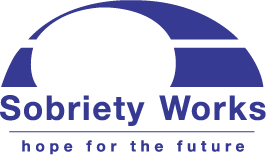Alcohol
Alcoholism is a chronic, progressive disease. Left untreated, alcoholism can be fatal. However, many people all over the world have successfully treated their alcoholism and are now living productive, happy lives without alcohol.
Alcoholism is characterized by a preoccupation with alcohol and impaired control over alcohol intake. You may continue to abuse alcohol despite serious adverse health, personal, work-related and financial consequences. Alcoholism usually involves physical dependence on alcohol, but genetic, psychological and social factors contribute to the addiction as well.
Each year more than 100,000 Americans die of alcohol-related causes. Alcohol is a factor in nearly half of all U.S. traffic deaths. In addition, alcoholism and alcohol abuse cause major social, economic and public health problems. Various treatments are available, and self-help groups can provide ongoing support for people recovering from alcoholism.
Signs and symptoms
Most alcoholics deny that they have a drinking problem. Other indications of alcoholism and alcohol abuse include:
Drinking alone or in secrecy
Being unable to limit the amount of alcohol you drink
Not remembering conversations or commitments, sometimes referred to as “blacking out”
Making a ritual of having drinks before, with or after dinner and becoming annoyed when this ritual is disturbed or questioned
Losing interest in activities and hobbies that used to bring pleasure
Feeling a need or compulsion to drink
Irritability when your usual drinking time nears, especially if alcohol isn’t available
Keeping alcohol in unlikely places at home, at work or in the car
Gulping drinks, ordering doubles, becoming intoxicated intentionally to feel good or drinking to feel “normal”
Having legal problems or problems with relationships, employment or finances
Building a tolerance to alcohol so that you need an increasing number of drinks to feel alcohol’s effects
Experiencing physical withdrawal symptoms - such as nausea, sweating and shaking - if you don’t drink
Treatment
The first step in treatment is to determine whether you’re alcohol dependent. If you haven’t lost control over your use of alcohol, treatment may involve reducing your drinking. If you’re dependent on alcohol, simply cutting back is ineffective. Abstinence must be part of your treatment goal.
If you aren’t dependent on alcohol but are experiencing the adverse effects of drinking, the goal of treatment is to reduce alcohol-related problems - often through counseling or a brief intervention, which usually involves alcohol-abuse specialists who can establish a specific treatment plan. Interventions may include goal setting, behavioral modification techniques, use of self-help manuals, counseling and follow-up care at a treatment center
Counseling may take many forms. With cognitive behavior therapy, you and your therapist identify distorted thoughts and beliefs that trigger psychological stress. You learn new ways to view and cope with traumatic events. Emphasis is placed on developing a sense of mastery and control of your thoughts and feelings.
Heavier drinking can turn good feelings into bad and bad feelings into worse. Since alcohol affects memory, people sometimes don’t remember feeling bad.
People who drink heavily often wind up doing things they really didn’t want to do. They end up in accidents, fights, and other bad situations that harm property, other people, and themselves.
Sobriety Works has a proven track record in treating alcohol dependence effectively. If you think you, or someone you care about, may have a problem with alcohol, we encourage you to contact us. All correspondence is caring, confidential, and respectful. Remember, there is hope for a substance free future.
Sources: The Mayo Clinic - www.thecoolspot.gov

